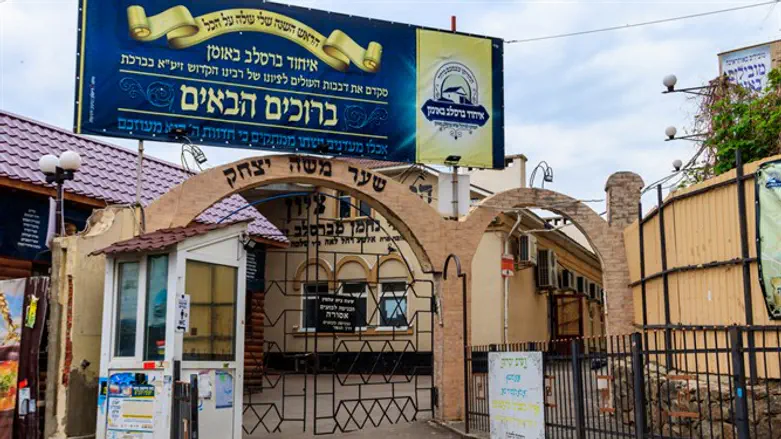
Regulations are one thing; enforcement is something else entirely. Eilat’s mayor refused to step in last week to restrict huge party events in the southern city, pointing out that if the government and police had not seen fit to intervene, why should he. Also recently, a huge concert in Tel Aviv with star performer Omer Adam attracted tens of thousands, with nary a police officer in sight.
Where’s the government in all of this? Turns out, in Uman.
Covid “Czar” Prof. Salman Zarka has decided to travel out to Ukraine, to keep an eye on the tens of thousands of Israelis who have traveled there to pray at the gravesite of Rebbe Nachman of Breslov for Rosh Hashanah, as is customary for Breslov hassidim. Almost 100 MDA employees are also in Uman, to oversee the administration of the coronavirus tests all Israelis are required to take before being allowed to board flights back to Israel after Rosh Hashanah.
According to a report in Yediot Aharonot, Zarka’s decision did not meet with the approval of the Health Ministry, which would have preferred to see more enforcement back home. They tried to persuade Zarka not to travel out to Uman, but he was insistent.
“There is wall-to-wall criticism of the project manager over this issue,” a senior health ministry official told Yediot Aharonot. “You’d think all our problems were over in Israel, seeing him fly out there. And even if he finds problems there – what can he realistically do about them? This trip is just PR for him,” the official concluded. “There’s no practical purpose to it at all.”
Other sources confirmed the critique, noting that morbidity rates in Israel are currently so high that focusing on foreign sources of infection makes little sense. In any case, they point out, Israelis returning from Uman are already required to take two COVID tests before being allowed back in Israel – one in Ukraine, and the second at Ben Gurion Airport. So what is Prof. Zarka hoping to achieve?
“I am traveling with the blessing of the Health Minister and the Prime Minister,” the professor responded. “It is my duty to be in problematic places, to see things at first-hand.”

